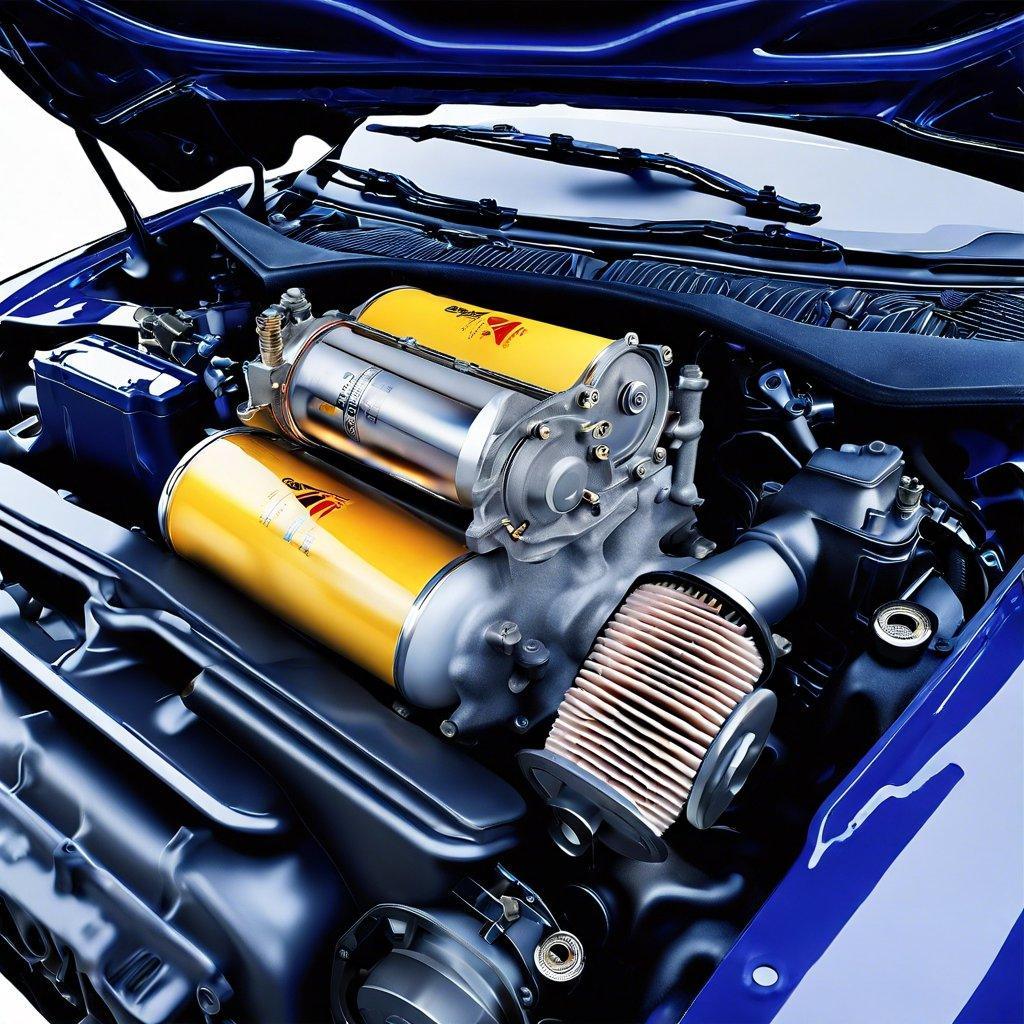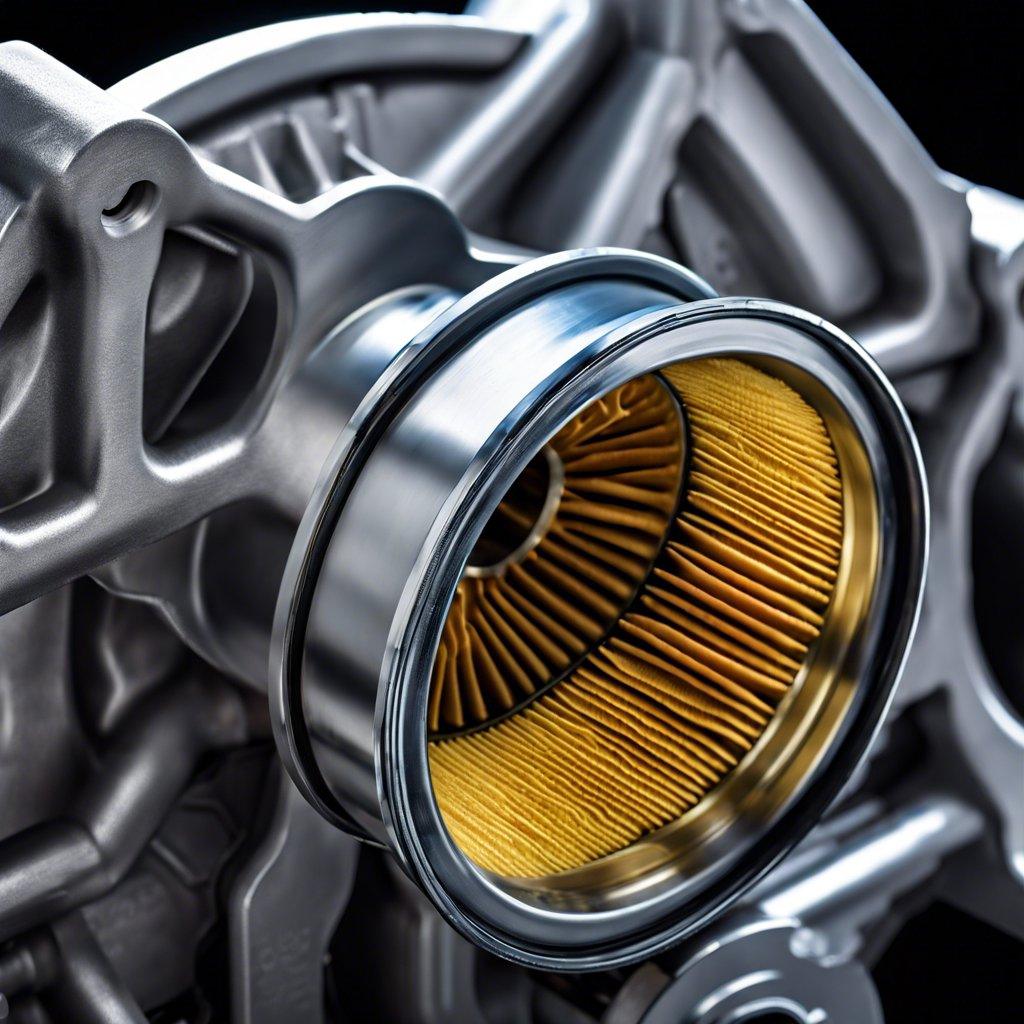Budgeting for a Fuel Filter Change: Tips for Savings
Maximizing Cost-Efficiency: A Comprehensive Guide to Budgeting for Fuel Filter Replacements

Understanding the Importance of Fuel Filter Maintenance
Replacing your vehicle’s fuel filter is a crucial maintenance task that helps ensure optimal engine performance and fuel efficiency. A clogged or dirty fuel filter can restrict fuel flow, leading to decreased power, reduced gas mileage, and even engine damage over time. Proactively budgeting for this essential service can help you avoid unexpected expenses and keep your vehicle running smoothly.
Factors to Consider When Budgeting for Fuel Filter Replacements
- Frequency of Replacement: The recommended interval for fuel filter changes can vary depending on your vehicle’s make, model, and driving conditions. Consult your owner’s manual or a trusted mechanic to determine the optimal replacement schedule.
- Cost of the Fuel Filter: The cost of the fuel filter itself can range from $10 to $100, depending on the make and model of your vehicle. Consider using aftermarket or generic filters to save money, but ensure they meet the manufacturer’s specifications.
- Labor Costs: The labor cost for a fuel filter replacement can range from $50 to $150, depending on the complexity of the job and the hourly rate of the mechanic. Some vehicle owners may choose to perform this task themselves to save on labor costs.
- Disposal Fees: When replacing the fuel filter, you may also need to factor in the cost of properly disposing of the old filter, which can range from $5 to $20.
Strategies for Budgeting and Saving on Fuel Filter Replacements
To help you budget effectively and minimize the cost of fuel filter replacements, consider the following strategies:
- Preventive Maintenance: Regularly inspecting and replacing your fuel filter according to the manufacturer’s recommendations can help extend its lifespan and prevent more costly issues down the road.
- DIY Fuel Filter Replacement: If you’re comfortable working on your vehicle, consider performing the fuel filter replacement yourself. This can significantly reduce the labor costs associated with the service.
- Bulk Purchasing: Buy fuel filters in bulk or take advantage of online discounts and promotions to save on the cost of the parts.
- Timing the Replacement: Plan ahead and replace the fuel filter during a scheduled maintenance visit to avoid additional labor costs.
- Negotiating with Mechanics: When working with a professional mechanic, don’t be afraid to negotiate the labor costs or ask about any discounts or promotions they may offer.
Budgeting Worksheet for Fuel Filter Replacements
| Item | Cost Range |
|---|---|
| Fuel Filter | $10 – $100 |
| Labor | $50 – $150 |
| Disposal Fees | $5 – $20 |
| Total Estimated Cost | $65 – $270 |
By understanding the factors that influence the cost of fuel filter replacements and implementing savvy budgeting strategies, you can ensure that your vehicle’s maintenance stays within your budget and helps maintain its performance and longevity.
Unlock Substantial Savings: Strategies for Optimizing Fuel Filter Change Expenditures
Maintaining your vehicle’s fuel filter is crucial for ensuring optimal engine performance and fuel efficiency. A clogged or dirty fuel filter can restrict fuel flow, leading to reduced power, decreased gas mileage, and even engine damage. By proactively changing your fuel filter at recommended intervals, you can unlock significant savings and extend the life of your vehicle.
Identifying the Right Fuel Filter Replacement Schedule
The recommended fuel filter replacement interval can vary depending on your vehicle’s make, model, and driving conditions. Consult your owner’s manual or a trusted mechanic to determine the appropriate schedule for your specific vehicle. Following the manufacturer’s guidelines can help you avoid unnecessary expenses and ensure the longevity of your engine.
Leveraging DIY Fuel Filter Replacement Strategies
In many cases, changing your fuel filter can be a straightforward DIY task, especially for experienced mechanics or those with a bit of technical know-how. Performing the fuel filter change yourself can significantly reduce the cost compared to having a professional service it. However, it’s essential to follow proper safety precautions and have the necessary tools and equipment on hand.
Comparing Fuel Filter Prices and Exploring Cost-Saving Options
Fuel filters can vary in price, depending on the make, model, and brand of your vehicle. Researching and comparing prices from multiple sources, such as online retailers, auto parts stores, and local mechanics, can help you identify the most cost-effective option. Additionally, consider taking advantage of any manufacturer or retailer promotions, coupons, or loyalty programs that can further reduce the overall cost of the fuel filter replacement.
Optimizing Fuel Filter Replacement Intervals
To maximize your savings, consider the following strategies:
- Extend the fuel filter replacement interval if your vehicle’s performance and fuel economy remain consistent, as recommended by the manufacturer.
- Monitor your vehicle’s fuel efficiency and watch for any signs of a clogged fuel filter, such as reduced power or decreased gas mileage, to determine the optimal replacement schedule.
- Combine fuel filter changes with other scheduled maintenance tasks, such as oil changes, to streamline the process and potentially save on labor costs.
| Cost Saving Strategies | Potential Savings |
|---|---|
| Performing DIY fuel filter replacement | $50 – $150 per replacement |
| Leveraging manufacturer or retailer promotions | 10% – 20% off the filter cost |
| Extending fuel filter replacement interval | $50 – $100 per extended replacement |
By implementing these strategies, you can unlock substantial savings and optimize your fuel filter change expenditures, ensuring your vehicle operates at peak efficiency while minimizing maintenance costs.
Fuel Filter Maintenance on a Shoestring: Practical Tips for Engineering and Technology Professionals
Maximizing Your Fuel Filter Maintenance Budget
As an engineering or technology professional, you understand the importance of keeping your vehicle’s fuel system in top condition. The fuel filter is a critical component that requires regular maintenance, but the costs can quickly add up. In this article, we’ll explore practical tips to help you maintain your fuel filter on a tight budget.
Identifying the Right Fuel Filter
The first step in saving money on fuel filter maintenance is to ensure you’re using the correct filter for your vehicle. Consult your owner’s manual or speak with a trusted mechanic to determine the appropriate filter size and specifications. This will help you avoid purchasing an incompatible or lower-quality filter that may not last as long.
Leveraging Aftermarket Options
Aftermarket fuel filters can often be significantly less expensive than their original equipment manufacturer (OEM) counterparts. While it’s important to ensure the aftermarket filter meets the same quality standards, you can save a considerable amount by exploring these options. Compare prices and reviews from reputable sources to find a reliable aftermarket filter that fits your budget.
Extending Filter Lifespan
- Regularly inspect your fuel filter for signs of wear or damage, and replace it as recommended by the manufacturer.
- Maintain a clean fuel system by using high-quality fuel and keeping your fuel tank filled to prevent condensation buildup.
- Consider installing a fuel filter with a longer lifespan, which may cost more upfront but can save you money in the long run.
DIY Fuel Filter Replacement
| Skill Level | Estimated Time | Cost Savings |
|---|---|---|
| Intermediate | 30-60 minutes | Up to 50% compared to professional service |
If you’re comfortable working on your vehicle, consider performing the fuel filter replacement yourself. This can save you a significant amount compared to having a mechanic do the job. Be sure to follow the manufacturer’s instructions carefully and have the necessary tools on hand.
Monitoring Fuel System Performance
Regularly monitor your vehicle’s fuel system performance, such as changes in fuel efficiency or engine performance. These can be early signs that your fuel filter needs to be replaced. Addressing issues promptly can help you avoid more costly repairs down the line.
Maintaining your vehicle’s fuel filter doesn’t have to break the bank. By following these practical tips, you can keep your fuel system in top condition while maximizing your budget as an engineering or technology professional. Remember to prioritize safety and consult with a trusted mechanic if you have any doubts or concerns.
Revolutionize Your Fuel Filter Budget: Innovative Approaches to Reduce Replacement Costs
Understanding the Importance of Fuel Filter Replacement
Fuel filters play a crucial role in maintaining the efficiency and longevity of your vehicle’s engine. Regular replacement of fuel filters is essential to ensure optimal performance, fuel economy, and engine protection. However, the cost of fuel filter replacement can quickly add up, making it a significant expense for many engineering and technology employees.
Identifying Cost-Saving Opportunities
To revolutionize your fuel filter budget, it’s essential to explore innovative approaches to reduce replacement costs. This can include:
- Preventive Maintenance: Adhering to the manufacturer’s recommended fuel filter replacement schedule can help you avoid costly breakdowns and extend the lifespan of your vehicle’s fuel system components.
- DIY Fuel Filter Replacement: Depending on your vehicle’s make and model, you may be able to perform the fuel filter replacement yourself, saving on labor costs.
- Bulk Purchasing: Buying fuel filters in bulk can often result in significant discounts, helping you stretch your budget further.
Leveraging Manufacturer Warranties and Rebates
Many vehicle manufacturers offer warranties and rebates on fuel filters, which can help offset the replacement costs. It’s essential to research and take advantage of these cost-saving opportunities to maximize your savings.
Exploring Alternative Fuel Filter Options
In addition to considering the manufacturer’s recommended fuel filters, you may also explore alternative options that offer comparable quality at a lower price point. This can include aftermarket or generic fuel filters that meet the necessary specifications for your vehicle.
| Driving Conditions | Recommended Replacement Interval |
|---|---|
| Normal Driving | Every 12,000 to 15,000 miles |
| Severe Driving Conditions (e.g., towing, dusty environments) | Every 6,000 to 9,000 miles |
By closely monitoring your vehicle’s fuel filter replacement needs and optimizing the intervals based on your driving conditions, you can further optimize your budget and extend the lifespan of your fuel system components.
Revolutionizing your fuel filter budget requires a strategic approach that combines preventive maintenance, cost-saving techniques, and a deep understanding of your vehicle’s fuel system requirements. By implementing these innovative approaches, engineering and technology employees can effectively reduce fuel filter replacement costs and ensure the long-term health and performance of their vehicles.




Post Comment